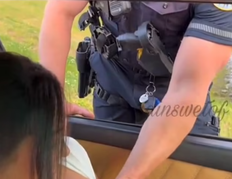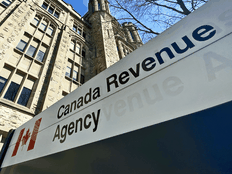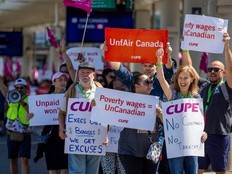'Despicable and criminal': Hotels join fight against human trafficking in Windsor 'hotspot'
Hotels joining fight against human trafficking, with Windsor, as a border city, identified as a 'hotspot.'

Article content
Hotel and motel owners in Windsor-Essex — a key hunting ground for human traffickers —are joining forces to help clamp down on the illicit sex and slave trade.
“Windsor is a hotspot. It always has been,” said Dharmesh Patel, manager of Leamington’s Quality Inn and regional chair of the Ontario Restaurant Hotel & Motel Association (ORHMA).
Recommended Videos
“And post-COVID, it is back in full force. During COVID it was harder. You had to report who’s in the room with you, and there was more attention put on it. Now we’re back to normal.”
Patel’s association is stepping up its campaign to get lodging owners on board with Not In Our Hotel. It’s a free training initiative designed to equip staff with the knowledge to recognize and respond to signs of human trafficking.
The United Nations Office on Drugs and Crime has stated that human trafficking is one of the world’s fastest-growing crimes, generating an estimated $150 billion in annual profits.
Public Safety Canada, which likens human trafficking to modern day slavery, said Canada is a source, destination and transit country for victims trafficked in sexual exploitation and forced labour.
“Human Trafficking is an ever-evolving crime that effects not only the victim, but those close to them as well,” a Windsor Police Service spokesperson told the Star in an email. Windsor police are not involved in the hotel campaign.
“Human trafficking is an issue in all jurisdictions and Windsor is no exception. We continually strive to combat human trafficking, by working with victims and community resources.”
Between 2013 and 2023, more than 4,500 incidents were reported to police services in Canada, according to Public Safety Canada, a federal government department. About 93 per cent of victims were women and girls.
More than 90 per cent of victims were trafficked by someone they know. And men made up 82 per cent of the people accused of human trafficking.
The ORHMA launched its initiative earlier this year in partnership with provincial hotel associations across Canada.
“By working together, we can leverage our resources and provide necessary training, while sending a powerful message against these despicable and criminal acts occurring in our hotels,” said association president and CEO Tony Elenis.
“The project aims to support all Ontario hotels with the information and tools required to combat the illegal operations of human trafficking.”
The training includes online modules for hotel staff with certificates of completion and reference materials including posters and on-the-job guides.
The free training is available to hotel owners, managers, and employees in British Columbia, Alberta, Saskatchewan, Manitoba, and Ontario.
Patel said most large hotel brands have completed the training. The focus is now on smaller independent businesses.
“It’s been an issue in our industry for quite some time, particularly motels and any hotels that have exterior corridors,” he told the Star.
“Small hotels where you enter from the parking lot and nobody can see you. Those are primary locations for human trafficking.”
There have been several recent high-profile human trafficking cases involving the Windsor region.
Ontario’s Human Trafficking Intelligence-Led Joint Forces Strategy (IJFS) announced on July 30 that an elaborate sting led to 1,100 men responding to a single online ad offering sex with an underage girl.
The task force identified men from Windsor and Essex County among those who responded to the bait over an 11-day period.
On July 16, several police agencies working under the IJFS arrested a 30-year-old Windsor man after receiving a tip in May about a victim being trafficked in London through online advertisements.
Last September, Windsor police arrested a 28-year-old Toronto man on 30 criminal charges following a human trafficking probe.
Police said the man forced a 26-year-old woman into the sex trade, controlling her money, food, and movements. He also assaulted the woman multiple times, including an incident where he threw an object at her and broke her front tooth, according to investigators.
The woman escaped after the suspect allegedly brought her from Toronto to Windsor to sell her sexual services.
In August 2024, two suspects were arrested in Windsor for violating bail conditions. They were among five people accused of enticing 64 Mexican nationals to come to Canada with the promise of a better life, then exploiting them.
“It is still a prevalent issue here,” said Patel. “We just want to make sure that people aren’t ignoring the signs.”
He said those signs include people paying with cash or booking through third-party websites. If they’re not paying with cash, he said the criminals will often use pre-loaded credit cards.
“The other thing to look for is when the people actually come into the hotel,” said Patel. “If it’s a younger person — usually females — and they have that scared look or something and they’re keeping an eye out. Those are really the signs to look for.”
Windsor police said people can help protect themselves from predators by setting strict privacy settings on social media accounts and being cautious of strange friend requests. Avoid oversharing personal information and be wary of online advertisements that seem too good to be true.
“If you encounter something suspicious, flag it instead of sharing it, and familiarize yourself with the warning signs of trafficking to be able to recognize and report it.”
Patel said the bulk of human traffickers coming to Windsor are from Montreal.
“That’s where the main guys come from,” he said. “They’re picking up kids and females, and sometimes even males, from all over. So Toronto is a hotspot and then Windsor being closest to the border.”
He said the international border does play a role in making Windsor a centre for human trafficking.
“People try to take them across,” said Patel. “It depends on what they’re being used for. Human trafficking is not just for sexual exploitation. Sometimes they ship these kids to other countries. And what happens from there, we have no idea.”











Postmedia is committed to maintaining a lively but civil forum for discussion. Please keep comments relevant and respectful. Comments may take up to an hour to appear on the site. You will receive an email if there is a reply to your comment, an update to a thread you follow or if a user you follow comments. Visit our Community Guidelines for more information.